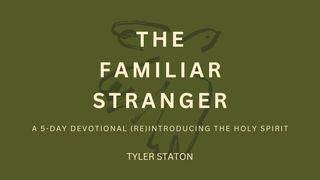Lifeguard on DutySample

DAY 7: Stay Alert
There are two types of drowning victims. The first is the one we see splashing around in the water, frantically trying to keep her head above water. We’ve looked at the different ways to engage with her. But there are also those who just quietly slip under the surface and nobody even notices. We call this a silent drowning. I believe that we encounter both of these in the people around us every day. We have friends, siblings, classmates, and co-workers that are drowning. Some of them are obvious and visible. They are open and honest with you about their life. Or they’re making such a scene that their cry for help can’t go unnoticed. But there are also others that are silently drowning, and no one knows. They’re too proud or too private or too afraid to cry out for help.
A Silent Drowning
I woke up one morning during a Christmas break to an alert in my inbox. During the night, our school’s filtering software had flagged a Google document in a sophomore’s school account for language related to self-harm. This is not entirely uncommon and many times the algorithm flags words and statements that were used quite harmlessly. But this one was different. It was titled, “My Last Letter” and it was a long and detailed note that began, “I chose to end my life; to put it simply, there were days when I felt empty and broken. I felt stripped of my pride, with nothing left to give. I didn’t want to endure my pain, so I left.”
I called our school principal, and we immediately began trying to reach the family. We called the parents’ home numbers, cell numbers, and work numbers. No answer. We tracked down the student’s cell phone number and called. No response. We texted. No reply.
I looked up the family’s address and jumped in my car. As I made the ten-minute drive to their home, I prayed desperately. “God, I don’t know what I’m about to find, but please help me be your hands and feet and voice in this moment. Spirit, come!”
I pulled up to their home and knocked on the door. The little sister came to the door.
“Are your parents here?”
“Yes,” she answered. “My daddy is home, but he’s still in bed.”
“Is your sister around?” I asked carefully.
“No, she’s still in her room.”
My heart sank and my voice cracked, “Oh, okay. Can you please go wake up your Daddy and tell him I need to speak with him?”
A few moments later the father emerged from his room and met me at the front door with a big smile and a firm handshake. “Good morning, Jim. How are you?” he asked with such enthusiasm.
As calmly as I could, I replied, “I need you to go check on your daughter right now. She wrote a very concerning letter late last night and I am worried about her.”
I saw the flicker of fear in his eyes. I nodded, willing him to go.
As he turned to race upstairs, his daughter appeared from around the corner, holding her cell phone to her ear. She was alive! I could hear the principal’s voice on the phone. The student had finally awakened and saw the text messages and called her back.
“I need you to go downstairs right now to see your father. He’s with Mr. McKenzie at your front door,” she ordered. “You need to show them that you are okay.”
For the next twenty minutes, I stood in the driveway to explain to the father about the letter and our attempts to contact the family before driving over. He expressed his gratitude and his intention to take all the appropriate next steps.
As I pulled out of the driveway, I began to sob. The emotions of the morning and what could have been all came flooding out. I rejoiced that what looked like a tragic day was going to be okay. She was silently slipping under the water, but her small cry for help was enough for us to reach out and pull her to safety.
And so, we continue to watch and to warn.
It was Peter, who Jesus pulled to safety years earlier, that wrote to the persecuted Christians living in Asia Minor in his first letter, “Stay alert! Watch out for your great enemy, the devil. He prowls around like a roaring lion, looking for someone to devour.”
Lifeguard on Duty
I was the lifeguard on duty. I was watching when the water moccasin left the brush and entered the swimming area of the lake. I warned everyone to exit the water quickly. And yet, I am now chasing this terrifying creature in knee-deep water as he makes a direct line toward an unknowing five-year-old boy swimming toward it. It’s large and venomous and its bite could prove deadly, given that the nearest hospital is at least twenty minutes away. I am splashing and yelling and doing everything I can to draw the snake’s attention away, but now I have no choice. I am going to grab it by the tail and sling it. The sounds of the people around me have faded. I hear only the muffled sound of my heartbeat. I take a breath, steel my nerves, and lunge toward the tail.
But I missed.
At that exact moment, the snake made a sudden turn ninety degrees left and continued parallel to the shoreline until it exited the swimming area on the other side.
The enemy is always looking for someone to devour. Stay alert. Stand watch.
REFLECTION
Peter said to “stay alert.” What can you do to be alert to the people around you who might need a helping hand?
Scripture
About this Plan

Every day we encounter people who are drowning in life. Whether friends or family, colleagues or co-workers, we can let them know that we are standing watch. We can be a lifeguard on duty. In this 7-day Bible plan, we'll explore lessons from a lifeguard and wisdom from Scripture to guide us in offering a helping hand to others while still being mindful of our own well-being.
More
We would like to thank Jim McKenzie for providing this plan. For more information, please visit: http://www.jcmckenzie.com
Related Plans
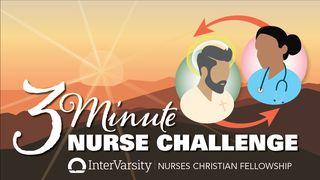
Following Jesus in Nursing: A Daily Devotional for Caregivers

Esther’s Legacy: Embracing Your Role in God’s Sovereign Plan

Desperate Prayers for Hope in Hard Times

Building Wealth God’s Way: Biblical Keys to Increase Your Net-Worth

Sound of Heaven: A 6-Day Devotional by Danny Gokey
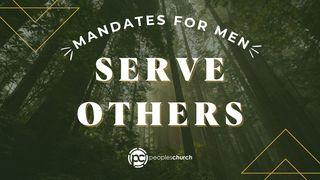
Mandates for Men: Serve Others
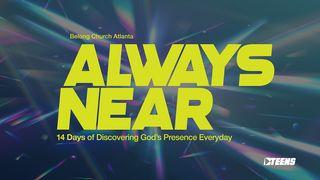
Always Near: 14 Days of Discovering God’s Presence Every Day
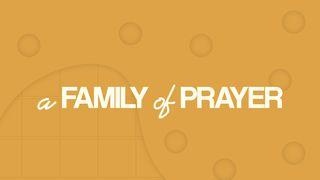
A Family of Prayer

Fervent Still
